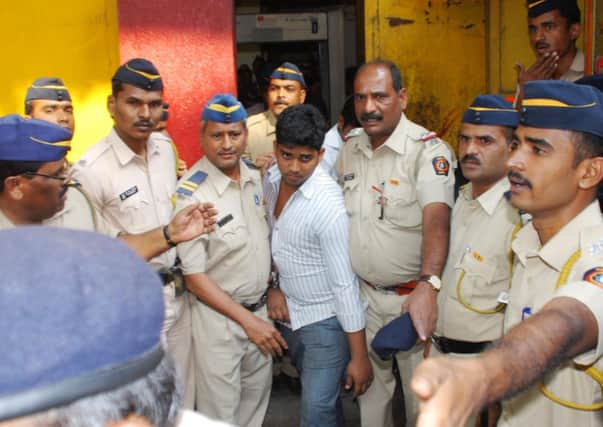Four men face life in prison for Mumbai gang rapes


The case has renewed calls for more to be done to tackle sexual violence in India.
Rape and sexual assaults are rarely talked about in India. But media reports of the Mumbai rapes fuelled demands from many organisations across India for a cultural change in how such cases are prosecuted.
Advertisement
Hide AdAdvertisement
Hide AdThe attack on the call-centreoperator was only reported after the high-profile coverage of the later attack on the journalist.
The rapes happened about a month apart in the same abandoned textile mill in the Lower Parel district of Mumbai, where luxury shopping precincts and condominiums stand alongside sprawling slums.
Three of the men were convicted in both cases, court officials said.
In the first case, the call-centre operator was gang-raped on 31 July last year inside the abandoned mill. Nearly a month later, a 22-year-old photojournalist was on assignment with a male colleague when several men approached and offered to help them get permission to shoot photos in the disused building. Once inside, the male colleague was beaten and tied up while the attackers took turns raping the woman.
“I hope this verdict will act as a deterrent,” said Maharashtra home minister RR Patil, saying the cases were tried in the “fastest possible time”.
The men face 20 years to life in jail, prosecutor Ujjwal Nikam said. They are due to be sentenced today. Two minors are being tried separately by a juvenile court.
The men convicted of the crimes range in age from 19 to 26, according to local media.
Mumbai police said the suspects had little to no education and lived in the slums near the rundown mill.
Advertisement
Hide AdAdvertisement
Hide AdBoth trials were held by a fast-track court in a country where the justice system is notorious for delays.
But rape cases have taken on a sense of urgency since December 2012, when a 23-year-old medical student was gang-raped on a moving bus in New Delhi. She was also assaulted with an iron bar and later died in a Singapore hospital where she had been flown for specialist treatment.
That incident prompted discussions about tolerance of sexual harassment, sexual assault and violence against women in a country where rapid cultural and economic change is clashing with entrenched conservatism.
Four men have been sentenced to death in the New Delhi gang-rape case.
Pledging to crack down, the federal government created fast-track courts for rape cases, doubled prison terms for rape, and criminalised voyeurism, stalking, acid attacks and the trafficking of women.
Earlier this month a court in India found three people guilty of the rape of a Catholic nun in Orissa state in 2008. The nun was raped by a Hindu mob in Kandhamal district, days after riots between Hindus and Christian there.
Riots began after a Hindu religious leader was shot dead.
Although left-wing Maoist rebels claimed responsibility for the killing, hard-line Hindu groups blamed the minority Christian community for the death. More than 30 people were killed in the violence and dozens of churches and Christian institutions were vandalised.
Police had arrested nine people over the rape of the nun. One accused is still at large.
Advertisement
Hide AdAdvertisement
Hide AdAccording to 2012 statistics, New Delhi has the highest number of rape reports among Indian cities, while Jabalpur has the highest per capita incidence of reported rapes.
Sources show that reported rape cases in India have doubled between 1990 and 2008.
According the National Crime Records Bureau, in 2012, 25,000 rape cases were reported across India.
Out of these, no fewer than 24,470 attacks were found to have been committed by a relative or a neighbour, the figures revealed.